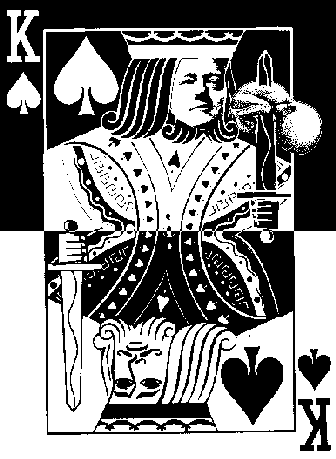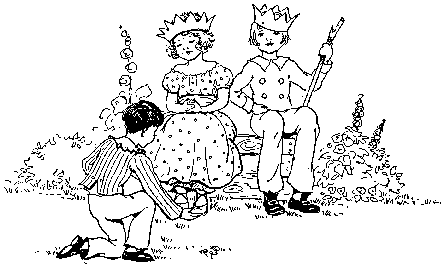
|

|

|
| Home | Stories | Previous Page |

|

|

|
| Home | Stories | Previous Page |
 The Evil King:
The Evil King:
If God chooses the sovereign, how did we end up with Clinton?
by Paul deParrie
And [God] changeth the times and the seasons: he removeth kings, and setteth up kings. — Daniel 2:21a (KJV)
As we look toward the second inaugu-ration of President Bill Clinton this month, many Christians are probably wondering how such an "evil king" could be placed over us. It is difficult to imagine God administering the oath of office to such a renegade. And, yet, if we are to believe Scripture, God is doing much more than that — He is conferring upon Bill Clinton the full authority of leadership.
A verse related to Daniel's words, Romans 13:1, reminds us, "There is no authority except from God, and those which exist are established by God."
It doesn't seem to make sense.
Right now, leaders of the Christian Coalition and dozens of other Christian-based organizations are ruminating over how they might better have used their resources to have brought about a Republican victory. Clearly, such hindsight speculation denies the premise of Daniel's praise shown above.
No, it doesn't mean that Christians should have done nothing, It just means that this result was precisely what God had in mind. The question is: Why?
The premise
And Ahab the son of Omri did evil in the sight of the Lord above all that were before him.
— 1 Kings 16:30 (KJV)
Quotations like the one above abound in the Old Testament. The vast majority of the kings of Israel and Judah were described as "doing evil in the sight of the Lord." More than that, Israel was often subjugated by cruel pagan nations — Moab, Philisitia, Assyria, Babylon — and their evil kings.
It is obvious that God had no compunction against feeding His people to tyrants and oppressors.
But under traditional American theology — a blend between Puritanism and the "Can-do" American spirit — if one does good in the eyes of God (i.e., believes, goes to church, commits no gross sins) everything will go well in life. Despite the fact that Scripture teaches otherwise, American Christians seem to have steadfastly held to this simplistic doctrine.
Since the Scripture teaches that the things which happened to Old Testament Israel were written to admonish the New Testament Church (1 Corinthians 10:11), it is important that we examine the troubles Israel had in this regard.
Biblically, there are several reasons why God might place His own people under some form of hardship:
1. To prove them (Deuteronomy 8:15-16),
2. to improve them (1 Peter 1:7 and James 1:3),
3. to approve them (2 Timothy 3:12 and 1 Corinthians 11:18-19),
4. to reprove them (Jeremiah 25:1-11 and Hebrews 12:5-11), or
5. to force them to act (as in the exodus from Egypt and in Acts 8:4).
However, the only places in the Bible where we see God actually giving bad kings to His people is when they were in rebellion against Him. Israel, for example fell under evil kings, foreign or domestic, only when they gave way to idolatry, child sacrifice, sexual license, and oppression of the poor. None of these are light or transient causes.
While our Pilgrim forebears used to call a fast and fall to their knees pleading with God to show them the error of their ways the instant anything went wrong, their spiritual descendants can watch droughts, floods, plagues, diseases, parades of sodomites, millions of abortions, and still never seriously consider that anything is amiss or that judgment from God is upon them.
It is possible that the re-election of Bill Clinton will remove the rose-colored glasses from American Christian theology.
Using Scriptural history as an example, it is possible to premise that the election of Bill Clinton was an appointment of an evil king by God in order to chasten His Church for sin — and possibly turn His church from sin.
Proverbs 16:4 warns, "The Lord hath made all things for himself: yea, even the wicked for the day of evil." . . .(continued in magazine, for the rest of this artilce please contact us)
